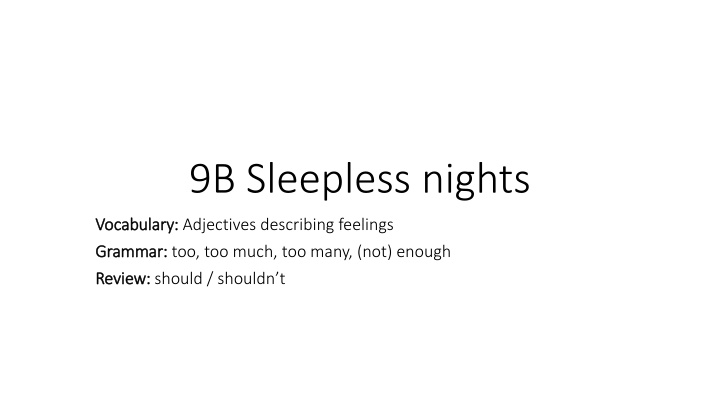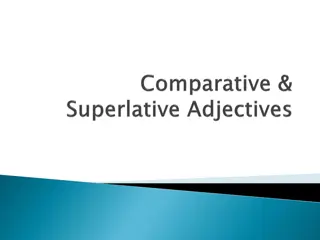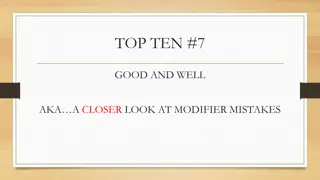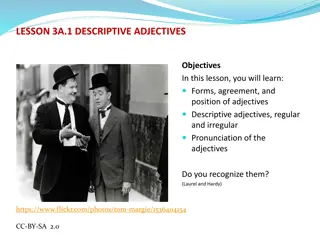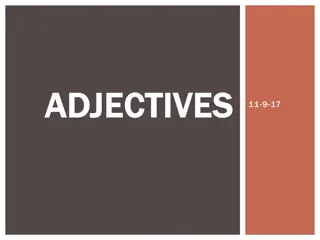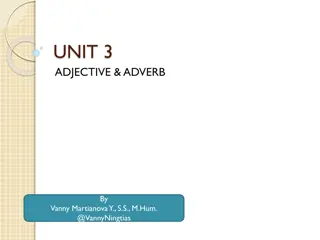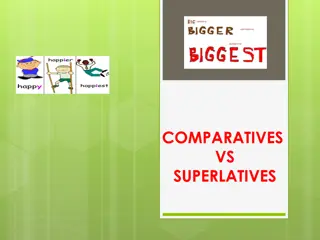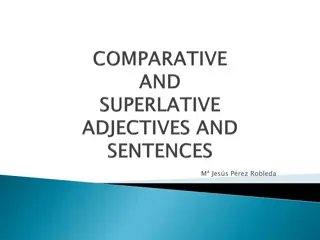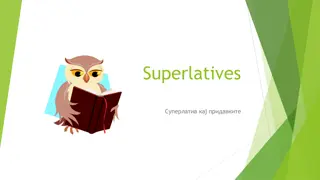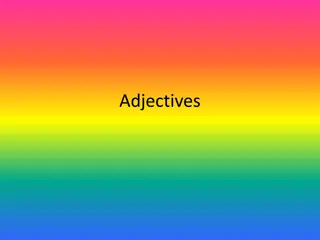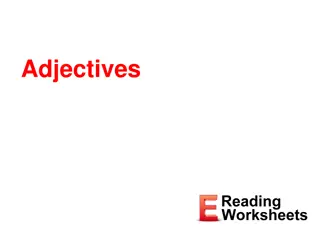Adjectives Describing Feelings Vocabulary and Grammar Review
Adjectives for feelings like satisfied, guilty, upset, and more. Learn grammar concepts of 'too,' 'too much,' 'too many,' and 'not enough.' Practice exercises for better comprehension.
Download Presentation

Please find below an Image/Link to download the presentation.
The content on the website is provided AS IS for your information and personal use only. It may not be sold, licensed, or shared on other websites without obtaining consent from the author.If you encounter any issues during the download, it is possible that the publisher has removed the file from their server.
You are allowed to download the files provided on this website for personal or commercial use, subject to the condition that they are used lawfully. All files are the property of their respective owners.
The content on the website is provided AS IS for your information and personal use only. It may not be sold, licensed, or shared on other websites without obtaining consent from the author.
E N D
Presentation Transcript
9B Sleepless nights Vocabulary: Vocabulary: Adjectives describing feelings Grammar: Grammar: too, too much, too many, (not) enough Review: Review: should / shouldn t
Please, open your books, p. 70 and try to do exercise 1 Which words describe positive feelings? Which words describe negative feelings? Below, you can find help with new vocabulary Satisfied pleased because you have got what you wanted: Guilty feel very bad about something you did wrong Upset unhappy or worried because somethong bad has happened Lonely - unhappy because you don t have any friends or anyone to talk to Nervous worried because of something that s going to happen Confident certain that you can do things well Fed up annoyed or bored because you have done somehing for too long Sad unhappy Calm relaxed and peaceful Annoyed a bit angry Stressed worried and not able to relax Depressed very unhappy, often for a long time Angry a strong negative feeling you have which makes you want to shout at someone Pleased happy about something that happened Embarrassed feel stupid because of something you did or something that happened
Discuss these questions: - What s the best age to have children? Why? - How does your life change when you have your first baby, do you think? - Do you know people with babies or young children? - Do you ever look after children for friends or someone in your family? After that, instead of Listening, please open your book on the page 153, and read the tapescript R9.4. Now, do execrcise 4/5 on the page 70/71.
Grammar too, too much, too many, (not) enough We use too, too much, too many to say something is more than we want. Too + adjective: I try not to get home too late. Too much + uncountable noun: He s got too much work to do. Too many + countable noun: I ve always got too many things to do. We use not enough to say something is less than we want. Not + adjective + enough: She s not old enough to talk. Not + verb + enough + noun: I don t have enough energy to do anything in the day. We use enough to say something is the correct number or amount. Enough + noun: I earn enough money for the whole family. Adjective + enough: I think this place is big enough for us. TIPS: We often use the infinitive with to after these phrases: I ve got too many things to do today. Now, let s practice grammar. Could you please, do exercise 6/8/9, p. 71, Student s book, and exercise 3/4/5/6, lesson 9B, Workbook.
Giving advice If you want to give advice to someone, do it with You should / shouldn t ... and Why don t you ...? I ve got too much work to do. - You should talk to your boss. - Why don t you ask someone to help? Now, please, do the exercise 9/10, p.71, Student s book.
Thank you for your attention! #Stay positive! #Stay healthy! #Stay home! Lecturer Ivana Mila i ivana.milacic@udg.edu.me
